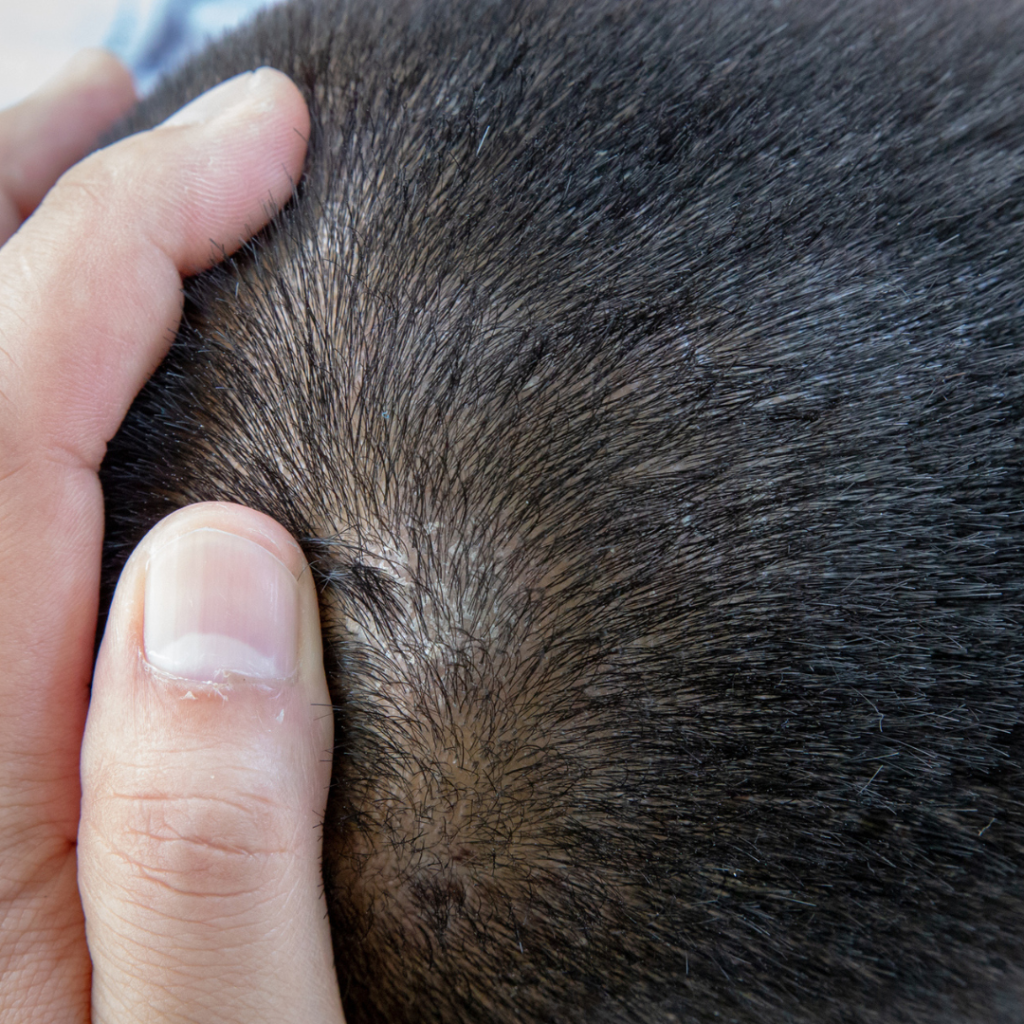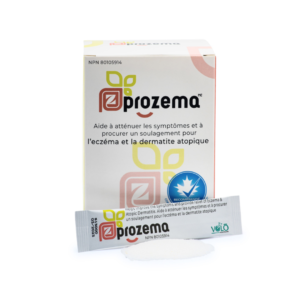
Scalp Eczema
Eczema | Eczema In Your Scalp | Dry Scalp | Concerns | Treatment | Prevention | Summary
Scalp Eczema
Eczema, a chronic skin condition characterized by inflammation and irritation, can affect various parts of the body. While it’s commonly associated with dry and itchy patches on the arms, legs, or face, eczema can also make its presence felt on your scalp.
Eczema is a condition known for its cycles of flares and remission. It can flare up at any time, causing discomfort and frustration. Eczema can even be seasonal, with symptoms worsening during certain times of the year, particularly in the harsh winter months or in hot, humid summers. This seasonal variation adds an extra layer of complexity to managing the condition, especially when it affects your scalp.
Scalp Eczema: What Is It?
Scalp eczema is a form of eczema that affects the scalp. It often shows up as red, scaly patches, and can lead to intense itching and discomfort. This condition can occur in people of all ages and may be a recurring issue for some.

Can You Have Eczema in Your Scalp?
Yes, you can have eczema on your scalp. Scalp eczema is not uncommon and can occur independently or alongside eczema in other parts of your body. While it shares similarities with other types of eczema, it has unique characteristics due to the scalp’s particular environment.
Can Eczema Cause Dry Scalp?
Eczema, including scalp eczema, is often associated with dry skin. This condition disrupts your skin’s natural barrier, leading to dryness. If you have scalp eczema, you may notice dry and flaky skin on your scalp, accompanied by itching and redness.
Eczema In Hair
Eczema on the scalp can present unique challenges, especially when it involves the hair. Here are some common concerns and tips for managing them:
1. Hair Care: The use of harsh shampoos and hair products can worsen scalp eczema. It is recommended to use mild, fragrance-free products to minimize irritation.
2. Flaking: Scalp eczema often leads to flaking, which can be mistaken for dandruff. To distinguish between the two, you should consult a dermatologist for a proper diagnosis.
3. Hair Loss: In severe cases, scalp eczema can even cause hair loss. Prompt treatment and proper care can help prevent this, but it’s essential to consult a healthcare professional for guidance.
Scalp Eczema Treatment
If you have scalp eczema, there are several treatment options you can explore.
1. Medicated Shampoos: Many over-the-counter shampoos contain active ingredients like pyrithione zinc, ketoconazole, or salicylic acid, which can help manage the dry, itchy skin on your scalp. For severe cases, your doctor may prescribe stronger medicated shampoos or topical corticosteroids.
2. Moisturization: Keeping your scalp moisturized is crucial. Using a hypoallergenic, fragrance-free conditioner or hair oil may help to maintain your scalp health.
3. Avoiding Irritants: Identify and eliminate potential triggers in your hygiene and beauty products. Read the labels and opt for gentle, sulfate-free hair care products where possible.
4. Stress Management: Stress may exacerbate your eczema symptoms. Practicing stress-reduction techniques like meditation and yoga may help improve your overall skin health.
5. Probiotics: Specific probiotic strains can help reduce the symptoms of scalp eczema. Look for the strains Bifidobacterium lactis CECT 8145, Bifidobacterium longum CECT 7347, and Lactobacillus casei CECT 9104 available in formulations such as ProZema Probiotic.

Prevention and Long-Term Management
Preventing scalp eczema flare-ups and managing the condition in the long term is possible with the right strategies:
1. Maintain Good Scalp Hygiene: Gently cleanse your scalp with a mild, fragrance-free shampoo, and avoid overwashing, as it can strip the natural oils from your hair and scalp.
2. Stay Consistent with Treatment: Follow your dermatologist’s advice consistently to prevent recurrence. This includes continuing any prescribed treatment for the recommended amount of time, unless you experience side effects.
3. Protect Your Scalp: In extreme weather conditions, wear a hat to protect your scalp from the cold, dry air or the sun’s UV rays.
4. Stay Hydrated: Proper hydration can help maintain skin health. Drink plenty of water to keep your scalp and skin hydrated.
5. Manage Triggers: The environment, household products, and even certain foods may trigger eczema flare-ups. Identify your triggers and avoid them if possible to keep your symptoms at bay.
Conclusion
Scalp eczema can be uncomfortable and challenging, but with the right knowledge and treatment, you can manage and alleviate its symptoms. Remember that every individual’s experience with scalp eczema is unique, and it may take some trial and error to find the most effective treatment for your specific case. Consult a healthcare professional for further guidance and support in your journey towards a healthier, itch-free scalp.
References
Eczema.org: Scalp Eczema – Information & Advice | National Eczema Society
Everyday Health: Scalp Eczema: Causes, Symptoms, Treatment, and More
Medical News Today: Scalp eczema: Causes, symptoms, treatment, and home remedies
National Eczema Association: Seborrheic Dermatitis | National Eczema Association
Healthline: Scalp Eczema: Causes, Symptoms, Treatment, and More
